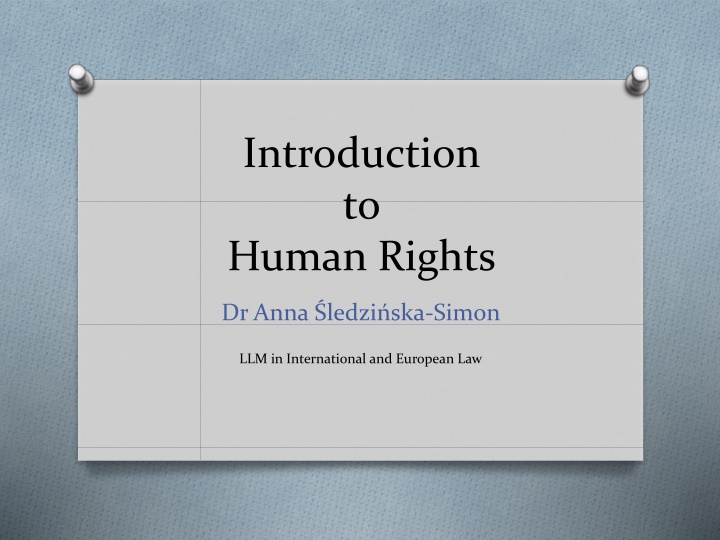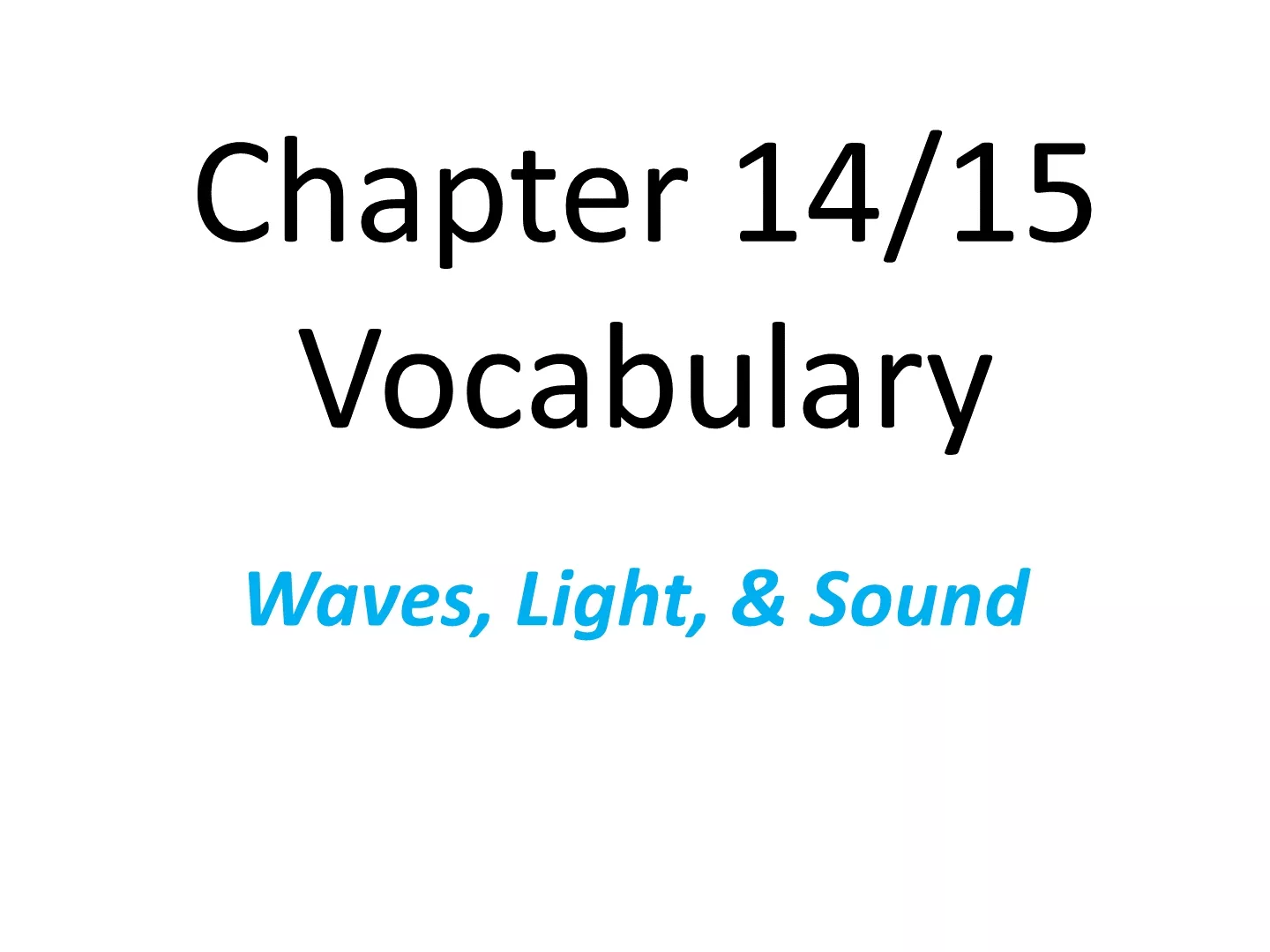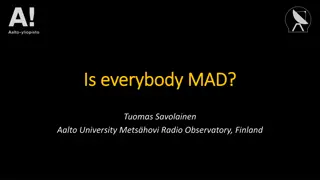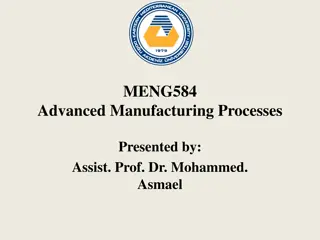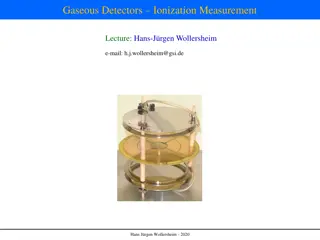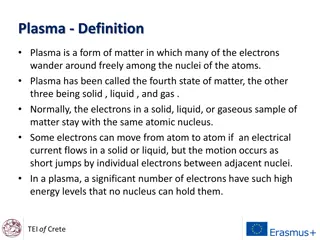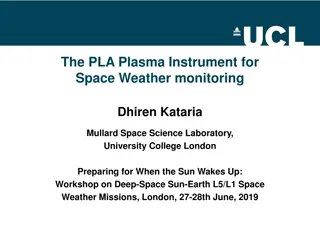Ionization Wave Dynamics of a Plasma Jet in Contact with Liquid Water
Atmospheric pressure plasma jets (APPJs) play a crucial role in various applications, including biomedical research. The interaction of a plasma jet with liquid in a controlled environment leads to the generation of reactive species, influencing biological effects. This study investigates the dynamics of the ionization wave in a plasma jet interacting with liquid, presenting an experimental setup involving TiO2/H2O and Laser Collisional Induced Fluorescence (LCIF) techniques. The research, supported by the US Department of Energy and National Science Foundation, aims to enhance our understanding of plasma behavior for future applications.
Download Presentation

Please find below an Image/Link to download the presentation.
The content on the website is provided AS IS for your information and personal use only. It may not be sold, licensed, or shared on other websites without obtaining consent from the author.If you encounter any issues during the download, it is possible that the publisher has removed the file from their server.
You are allowed to download the files provided on this website for personal or commercial use, subject to the condition that they are used lawfully. All files are the property of their respective owners.
The content on the website is provided AS IS for your information and personal use only. It may not be sold, licensed, or shared on other websites without obtaining consent from the author.
E N D
Presentation Transcript
Introduction to Human Rights Dr Anna ledzi ska-Simon LLM in International and European Law
Contents O Derogations human rights law from international O Limitations in human rights law O Current discussions on the state of emergency or the emergency public health
Questions for a debate O How should a state (respecting human rights) react to the COVID-pandemic: - Declare the state of emergency and use the emergency powers to fight the pandemic, or - Act as in times of normalcy and rely on the normal state powers: use measures restricting human rights that are proportionate to the prevention of the spread of COVID / protection of human lifeand public health? - What if a state does not declare the state of emergency but uses the emergency powers and disproportionately restricts human rights...?
Derogation clause in the ECHR Article 15 O 1. In time of war or other public emergency threatening the life of the nation any High Contracting Party may take measures derogating from its obligations under this Convention to the extent strictly required by the exigencies of the situation, provided that such measures are not inconsistent with its other obligations under international law. O 2. No derogation from Article 2, except in respect of deaths resulting from lawful acts of war, or from Articles 3, 4 (paragraph 1) and 7 shall be made underthis provision. O 3. Any High Contracting Party availing itself of this right of derogation shall keep the Secretary General of the Council of Europe fully informed of the measures which it has taken and the reasons therefor. It shall also inform the Secretary General of the Council of Europe when such measures have ceased to operate and the provisions of the Convention are again being fullyexecuted.
Derogation clause in the ECHR Non-derogable rights: O the right to life, O prohibition of torture, O prohibition of slaveryand O prohibition implementation of criminal punishment. of retrospective
Derogation clause in the ECHR (1) the dutyof notification (2) the use of the derogation clause is subject to the judicial supervision by the ECtHR (3) official declaration of war or the state of emergency (4) declaration of war or the state of emergency must be necessary in a given situation (the existance of public emergency requires that: (a) It must be actual or imminent. (b) Its effects must involve the whole nation. (c) The continuance of the organised life of the community must be threatened. (d) The crisis or danger must be exceptional, in that the normal measures or restrictions, permitted by the Convention for the maintenance of public safety, health and order, are plainly inadequate) (5) proportionality: the adopted measures must be proportional to the extent strictly required by the situation (implying the following questions: (a) Is the derogation of the particular guaranteed right the only way to cope with the emergency or are there less drastic alternatives? (b) How far must the derogation of this right extend? (c) Are there any checks and safeguards against excessive or unnecessary use of the derogation? (d) Did the government relax or terminate the derogation as soon as this was possible? (6) obligation to respectother international norms O O O O O O
Derogation clause in the ECHR O With regard to the proportionality assessment the Court needs to assess: - Which rights are affected by the adopted measures? - What is their extent? - Are these measures supported by adequate guarantees or safeguards (procedural/remedial) - Are the measures adjusted to the changing situation / flexible ?
Derogation clause in the ECHR O See further https://digitalcommons.law.yale.edu/cgi/vi ewcontent.cgi?article=1193&context=yjil * please note that this article is published before the reform of the 1998 which eliminated the Euroepan Commissionof Human Rights
Derogation clause in the ICCPR O (1) the state must officially proclaim a state of emergency; O derogation measures must be (2) necessary, O (3) proportionate, and O (4) compliant with other international law obligations; and O (5) the state must officially inform the international community of its intent to impose such measures.
Derogation clause in the ICCPR O O Article 4 1 . In time of public emergency which threatens the life of the nation and the existence of which is officially proclaimed, the States Parties to the present Covenant may take measures derogating from their obligations under the present Covenant to the extent strictly required by the exigencies of the situation, provided that such measures are not inconsistent with their other obligations under international law and do not involve discrimination solely on the ground of race, colour, sex, language, religion or social origin. 2. No derogation from articles 6, 7, 8 (paragraphs I and 2), 11, 15, 16 and 18 may be made under this provision. 3. Any State Party to the present Covenant availing itself of the right of derogation shall immediately inform the other States Parties to the present Covenant, through the intermediary of the Secretary-General of the United Nations, of the provisions from which it has derogated and of the reasons by which it was actuated. A further communication shall be made, through the same intermediary, on the date on which it terminates such derogation. O O
Derogation clause in the ICCPR Non-derogable rights under Article 4 ICCPR: O the right to life, O the prohibition of torture and other cruel, inhuman or degrading treatment or punishment, O the prohibition of slavery and servitude, O the prohibition of imprisonment for inability to fulfil a contractual obligation, O the prohibition against the retrospective operation of criminal laws, O the right to recognition before the law.
Derogation practice in the view of the Covenants O https://www.asil.org/insights/volume/24/is sue/5/human-rights-law-time-coronavirus
Limitation clauses O - Absolute rights are only few: under the ECHR the list includes the prohibition of torture and inhuman or degrading treatment or punishment and the prohibition of slavery (it is crucial to distinghish absolute rights from non- derogable rights, see Article 15 ECHR) Most human rights are relative and thus subject to limitations Even the right to life can be limited Article 2 ECHR authorizes the use of force (that may lead to intentioanl deprivation of human life) in exceptional situations: (a) in defence of any person from unlawful violence; (b) in order to effect a lawful arrest or to prevent the escape of a person lawfully detained; (c) in action lawfully taken for the purpose of quelling a riot or insurrection when it is absolutely necessary. Typically, limitations of human rights are permissible as long as the state has (a) a legitimate interest to adopt measures restricting a particularright orfreedom, and these measures are (b) introduced by an act of statutory law, and (c) proportionate to theaim theyserve. Most typical limitation clauses can be found in Articles 8, 9, 10 and 11 ECHR. O - - O
Limitation clauses Take the example of Article 8 ECHR 1. Everyone has the right to respect for his private and family life, his home and his correspondence (each of these areas has a different scope of protection for example private life means the right to have intimate and private relationships, the recognition of one s gender identity, the right to be protected against a violent partner, the right to protection of a good name and honour, the right to self-deternmination in bioethical issues, etc). 2. There shall be no interference by a public authority with the exercise of this right except such as is in accordance with the law (FORMAL REQUIREMENT interference must be provided by statutory law which is sufficiently clear and precise) and is necessary in a democratic society (there must be a pressing social need to adopt a measure interfering with the exercise of this right and the measure needs to be proportionate to the aims it furthers in this regard the Court assesses whether domestic authorities struck a fair balance between the protection of a legitimate aim and the limitation of the right) in the interests of national security, public safety or the economic well-being of the country, for the prevention of disorder or crime, for the protection of health or morals, or for the protection of the rights and freedoms of others (this is the catalogue of legitimate aims).
Limitation clauses in practice O O O Note that the full-scale test of proportionality implied by the necessary in a democratic society clause consists of three criteria: (a) suitability whether the chosen measure is suitable to attain the legitimate aim, (b) necessity in the strict sense whether there is a less restrictive measure that serves the attainment of the legitimate aim equally well, and (c) proportionality in the strict sense whether a fair balance has been struck between the interference and the protection of the legitimate aim / sometimes within this question there is another one - whether the measure is not discriminatory or stereotyping. In practice, however, the Court usually focuses on whether there is a fair balance between the interest at stake Additionally, the last element of this assessment allowing the Court to distance itself from the domestic solution to the case is related to the concept of the margine of appreciation (the Court does not interfere in matters in which there is no European consensus or the domestic authorities know better what is necessary). (1) an interference provided by law (statute or an act of the same legal value) (2) in a legitimate aim (3) necessary in a democratic society
Limitation clause in practice O Check out how the Court assesses ann interference in the scope of the right to respect for private and family life in no high risk (to national survival) cases: O Vetsevv. Bulgaria 2 May 2019 (no. 54558/15) O Funeral of a prisoner s brother. The refusal of the Bulgarian authorities to allow a prisoner to attend his brother s funeral. The Court considered that the Bulgarian authorities had rejected the claim on the grounds that this was not provided for under national law, without its decision being based on a detailed examination of the individual circumstances and without balancing the interests at stake, namely the right to respect for private and the applicant s family life, on the one hand,and the need to prevent disorder and crime on the other. Therefore, the Court considered that it had not been shown that interference with the applicant s right to respect for the private and family life was necessary in a democratic society. Infringementof Article 8 of the ECHR O Similardecision Czarnowski v. Poland 20 January 2009
Limitation clause in practice O Check out how the Court assesses an interference in the scope of the right to respect forprivate and family life in high risk cases: Guimon v. France 11 April 2019 This case concerned the refusal to allow the applicant, an active member of ETA until her arrest in 2003 and who was imprisoned in Rennes for terrorist offences, to travel to a funeral parlour in Bayonne to pay her last respects to her deceased father. The Court held that there had been no violation of Article 8 (right to respect for private and family life) of the Convention, finding that the French State had not exceeded the margin of appreciation afforded to it in this area and that the refusal to grant the applicant s request had not been disproportionate and had pursued legitimate aims. It noted in particular that the authorities had rejected the request on the grounds, firstly, of the applicant s criminal profile she was serving several prison sentences for terrorist offences and continued to assert her membership of ETA and, secondly, because it was impossible to organise a reinforced security escort within the timeavailable. O
Using the derogation powers in the COVID-pandemic O Kanstantsin Dzehtsiarou: Article 15 derogations are not particularly useful and they send an unnecessary message to people that states will start limiting their human rights. (...) the practical impact of Article 15 might be very limited. In terms of legality most states make some form of emergency legislation and this will perhaps satisfy the Court to accept that these measures are legal. (...) the extent of pandemic is such that fairly restrictive measures will nevertheless fall within the scope ttps://strasbourgobservers.com/2020/03/27/covid-19-and-the-european- convention-on-human-rights/ Alan Greene: Declaring a state of emergency under Article 15 of the ECHR and expressly acknowledging the unpalatable and temporary nature of these measures is best practice. It ensures that other states and international human rights organisations can monitor and even police how powers are being implemented: https://theconversation.com/state-of-emergency-how-different- countries-are-invoking-extra-powers-to-stop-the-coronavirus-134495 Alan Greene: failure to use Article 15 ECHR risks normalising exceptional powers and permanently recalibrating human https://strasbourgobservers.com/2020/04/01/states-should-declare-a-state-of- emergency-using-article-15-echr-to-confront-the-coronavirus-pandemic/ of allowed limitations: O O rights protections downwards:
Using the derogation powers in the COVID-pandemic O Sean Molloy: Drawing on jurisprudence from the Court in relation to the conflict in Northern Ireland, this post argues that it is likely that the vast majority of cases exploring derogation will be found in a government s https://verfassungsblog.de/covid-19-and- derogations-before-the-european-court-of- human-rights/ failure:
Using the derogation powers in the COVID-pandemic O Martin Scheinin: In light of the risk of abuse, it appears as the safe course of action to insist on the principle of normalcy, i.e. to handle the crisis through normally applicable powers and procedures and insist on full compliance with human rights, even if introducing new necessary and proportionate restrictions upon human rights on the basis of a pressing social need created by the pandemic. (...) What can be done under the framework of permissible restrictions, should be preferred. If those available options prove insufficient during COVID-19, then it is better to derogate than not toderogate: O http://opiniojuris.org/2020/04/06/covid-19- symposium-to-derogate-or-not-to-derogate/
Are anti-COVID measure provided by law? O Are anti-COVID measures containg restrictions of human rights provided by laws adopted by the legislature, or if the legislature has delegated the power to regulate certain aspects of social life to the executive, is this delegation sufficiently precise about the scope of government interference into human rights, or rather it gives the executive a carte blanche toeffectively fight the pandemic? O Check out the currentdebate here O https://www.justsecurity.org/70081/italy-and-covid- 19-a-call-for-an-italian-emergency-constitution/ O https://www.tandfonline.com/doi/full/10.1080/0961 5768.2020.1759398
